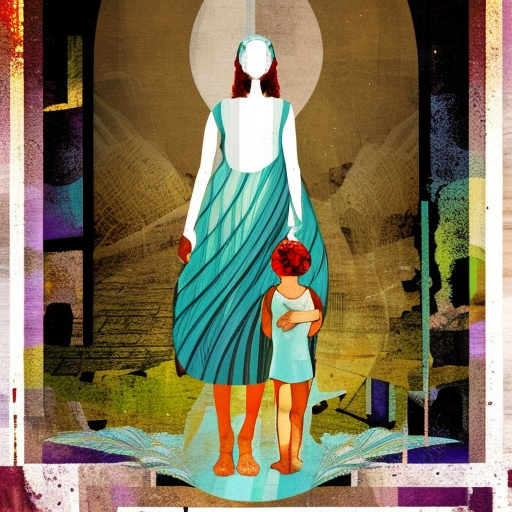One-line Summary:
A middle-aged professor’s vacation in Italy takes an unexpected turn when she becomes obsessed with a young mother and her daughter, forcing her to confront her own past and question her identity.
Introduction:
“The Lost Daughter” by Elena Ferrante is a captivating novel that delves into the complexities of motherhood, identity, and the lingering effects of past choices. Set in an idyllic coastal town in Italy, the story follows Leda, a middle-aged professor on a solo vacation. As she observes the interactions of a young mother and her daughter on the beach, Leda’s own buried memories and unresolved emotions begin to resurface, leading her down a path of self-discovery and introspection.
Exploring Motherhood and Identity:
As Leda becomes increasingly fixated on the young mother, Nina, and her daughter, Elena, she is forced to confront her own experiences as a mother and the choices she made in the past. Through flashbacks, we learn about Leda’s tumultuous relationship with her own daughters and the guilt she carries for not being the mother she believed she should have been. Ferrante skillfully explores the complexities of motherhood, highlighting the sacrifices, regrets, and the constant struggle to balance personal desires with familial responsibilities.
The Power of Obsession:
Leda’s growing obsession with Nina and Elena becomes a central theme in the novel, revealing the deep-seated desires and unresolved issues within herself. As she covertly observes the young family, Leda’s fixation intensifies, leading her to make questionable decisions that blur the boundaries between right and wrong. Ferrante masterfully portrays the destructive power of obsession, showing how it can consume one’s thoughts and actions, ultimately leading to unforeseen consequences.
Confronting the Past:
Through Leda’s introspection and recollections, “The Lost Daughter” explores the notion of confronting one’s past and the impact it has on shaping one’s present identity. Leda’s memories of her own troubled relationship with her mother and her experiences as a young woman resurface, forcing her to reevaluate her choices and the person she has become. Ferrante skillfully weaves together the past and the present, highlighting the interconnectedness of our experiences and the lasting influence they have on our lives.
Key Takeaways:
- Motherhood is a complex journey filled with sacrifices, regrets, and the constant struggle to find a balance between personal desires and familial responsibilities.
- The power of obsession can consume one’s thoughts and actions, leading to unforeseen consequences.
- Confronting one’s past is essential for personal growth and understanding one’s present identity.
Memorable Quote:
“I had the idea that the world’s most profound changes don’t take place in the soul, they take place in the body.”
In “The Lost Daughter,” Elena Ferrante delivers a thought-provoking exploration of motherhood, identity, and the lasting impact of past choices. Through Leda’s journey of self-discovery, readers are confronted with the complexities of motherhood, the power of obsession, and the importance of confronting one’s past. Ferrante’s vivid storytelling and nuanced characters make this novel a compelling and introspective read.












